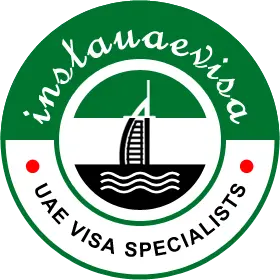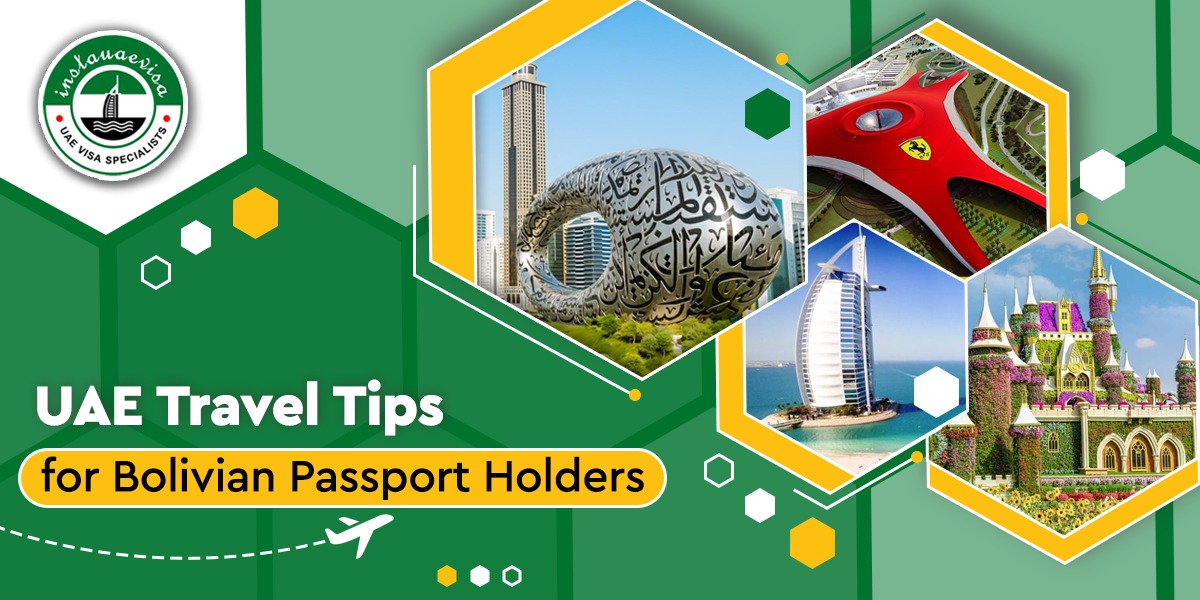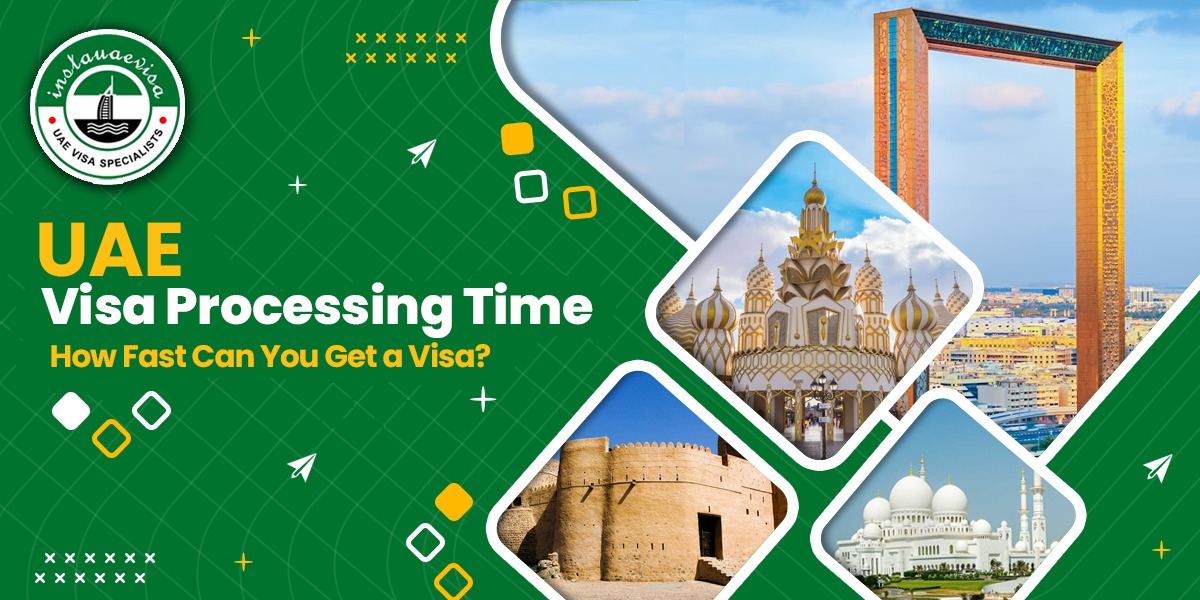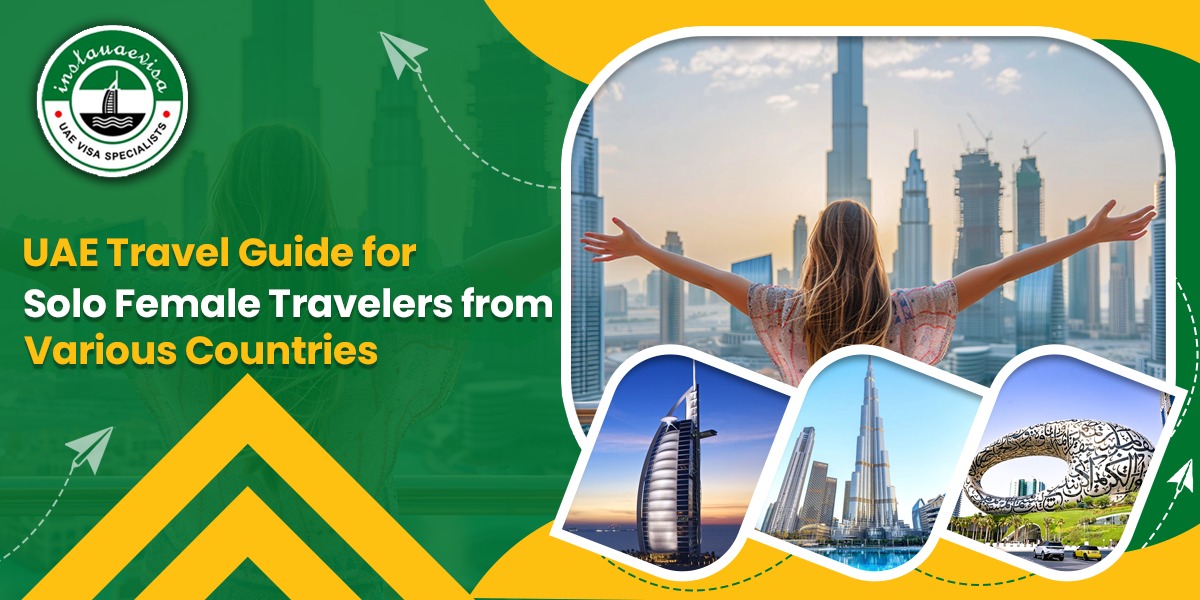The United Arab Emirates, a federation of seven emirates including Dubai and Abu Dhabi, has emerged as one of the world's most captivating destinations. With its blend of ultramodern architecture, rich cultural heritage, and diverse landscapes ranging from pristine beaches to dramatic deserts, the UAE offers Bolivian travelers an unforgettable experience in the heart of the Arabian Peninsula.
For Bolivian passport holders considering a journey to this Middle Eastern gem, proper preparation is essential. This comprehensive guide covers everything you need to know: from entry requirements and visa processes to cultural considerations, must-visit destinations, and practical travel advice that will help ensure your UAE adventure is seamless and memorable.
Entry Requirements for Bolivian Citizens
Visa Requirements
Bolivian passport holders require a visa to enter the United Arab Emirates. Unlike citizens from certain countries who may obtain visas upon arrival, Bolivians must secure their visa in advance. There are several visa options available depending on the purpose and duration of your visit:
- Tourist Visa: Valid for 30 days with possible extensions
- Visit Visa: For those visiting family or friends in the UAE
- Transit Visa: For short layovers at UAE airports
- Business Visa: For those traveling for business purposes
Application Process
The visa application process for Bolivian citizens involves several steps:
- Sponsor Requirement: Most visa applications require a sponsor, which can be:
- A UAE-based hotel where you have confirmed reservations
- A UAE-based tour operator
- A family member or friend who is a UAE resident
- A company in the UAE (for business visits)
- Documentation: Prepare the following documents:
- Valid Bolivian passport with at least six months validity beyond your intended stay
- Completed visa application form
- Passport-sized photographs with white background
- Round-trip flight itinerary
- Proof of accommodation arrangements
- Travel insurance valid for the UAE
- Proof of sufficient funds for your stay
- Sponsorship documents if applicable
- Submission: Applications can be submitted through:
- The official UAE government visa portal
- Authorized travel agencies in Bolivia
- UAE-based sponsors who can apply on your behalf
- Processing Time: Visa processing typically takes 3-5 working days but can vary based on the season and application volume.
Important Considerations
- Passport Validity: Ensure your passport remains valid for at least six months beyond your planned departure date from the UAE.
- Language: Having your documents translated into English or Arabic may expedite the process.
- Visa Fees: Be prepared to pay application fees, which vary depending on the type of visa and duration.
- Entry Stamps: Upon arrival, ensure your passport is properly stamped to avoid complications during your stay or upon departure.
Best Time to Visit the UAE
The UAE experiences a desert climate characterized by extremely hot summers and mild winters. For Bolivian travelers accustomed to diverse climates ranging from tropical to alpine, timing your visit is crucial for comfort:
Optimal Travel Seasons
- November to March: The ideal time to visit, with pleasant temperatures ranging from 15°C to 30°C (59°F to 86°F). These months offer comfortable conditions for outdoor activities and sightseeing.
- April to May and September to October: Shoulder seasons with warmer temperatures (25°C to 38°C or 77°F to 100°F) but still manageable for tourism. You'll find fewer crowds and potentially lower accommodation rates.
- June to August: The summer months bring extreme heat, with temperatures regularly exceeding 40°C (104°F). Outdoor activities become challenging during daylight hours, though indoor attractions and nighttime experiences remain viable options.
Seasonal Considerations
- Ramadan: The Islamic holy month follows a lunar calendar, so its dates change each year. During Ramadan, eating, drinking, and smoking in public during daylight hours is restricted. While tourists are not expected to fast, respecting these customs is important. Many restaurants remain closed until sunset, though major hotels maintain services for non-Muslim guests.
- Cultural Festivals: Consider timing your visit to coincide with events like the Dubai Shopping Festival (usually December-January), Abu Dhabi Festival (March-April), or the Dubai Food Festival (February-March).
Cultural Etiquette and Customs
The UAE is a Muslim country with traditions and customs that may differ significantly from those in Bolivia. Understanding and respecting these differences will enhance your experience:
Dress Code
While the UAE is relatively progressive compared to some other countries in the region, modest dress is appreciated and sometimes required:
- Public Areas: Conservative clothing that covers shoulders and knees is recommended for both men and women.
- Religious Sites: When visiting mosques, women should cover their hair, arms, and legs. Men should wear long pants and shirts with sleeves.
- Beach and Pool Areas: Western-style swimwear is acceptable at hotel beaches and pools.
- Upscale Venues: Many high-end restaurants and clubs have specific dress codes, often requiring smart casual or formal attire.
Social Etiquette
- Greetings: The traditional Arabic greeting is "As-salaam alaikum" (peace be upon you). A handshake is common, though be aware that some conservative Muslims may avoid physical contact with the opposite gender.
- Photography: Always ask permission before photographing locals, especially women. Avoid photography at government buildings, military installations, and some religious sites.
- Public Behavior: Public displays of affection should be minimal. Holding hands may be acceptable for married couples, but kissing and embracing in public places can lead to legal issues.
- Alcohol Consumption: Alcohol is available in licensed venues such as hotels, restaurants, and bars. Public intoxication is strictly prohibited and can result in severe penalties.
Religious Considerations
- Prayer Times: Muslims pray five times daily, and you may notice businesses briefly closing or reduced activity during these times.
- Friday as Holy Day: Friday is the Islamic holy day, with many businesses operating on reduced hours. The weekend in the UAE is Friday and Saturday, with Sunday being a regular working day.
- Ramadan Etiquette: If visiting during Ramadan, be particularly mindful of eating, drinking, or smoking in public during fasting hours.
Must-Visit Destinations in the UAE
The UAE offers a remarkable diversity of experiences across its seven emirates. Here are the highlights that Bolivian travelers should consider including in their itinerary:
Dubai
The most famous emirate combines futuristic architecture with traditional Arabian charm:
- Burj Khalifa: The world's tallest building offers spectacular views from its observation decks.
- Dubai Mall: One of the world's largest shopping centers, also home to the Dubai Aquarium and Underwater Zoo.
- Palm Jumeirah: Man-made island with luxury resorts, beaches, and water parks.
- Al Fahidi Historical District: Explore traditional wind-tower architecture and museums showcasing Emirati heritage.
- Desert Safari: Experience dune bashing, camel riding, and traditional entertainment in the desert surrounding Dubai.
Abu Dhabi
The capital emirate blends cultural richness with architectural marvels:
- Sheikh Zayed Grand Mosque: A breathtaking white marble mosque that can accommodate over 40,000 worshippers.
- Louvre Abu Dhabi: A universal museum displaying art and artifacts from around the world.
- Yas Island: Home to Ferrari World, Warner Bros. World, and Yas Waterworld theme parks.
- Corniche: A beautiful waterfront promenade with beaches, gardens, and recreational facilities.
- Qasr Al Watan: The presidential palace opened to the public, showcasing Arabian heritage and artistry.
Sharjah
Known as the cultural capital of the UAE:
- Sharjah Museum of Islamic Civilization: Houses more than 5,000 artifacts from the Islamic world.
- Al Noor Island: A peaceful retreat featuring art installations, gardens, and a butterfly house.
- Central Market (Blue Souk): Traditional Arabian marketplace known for gold, jewelry, and crafts.
Ras Al Khaimah
Offers natural beauty and adventure:
- Jebel Jais: The UAE's highest mountain, featuring the world's longest zipline.
- Dhayah Fort: An 18th-century fortification with panoramic views of palm gardens and mountains.
- Al Wadi Desert: Luxury desert experiences in a protected nature reserve.
Fujairah
The only emirate located entirely on the Gulf of Oman:
- Al Bidya Mosque: The oldest mosque in the UAE, dating back to the 15th century.
- Fujairah Fort: A beautifully restored historical fortress.
- Snoopy Island: Popular spot for snorkeling and diving with rich marine life.
Transportation in the UAE
Getting around the UAE is generally convenient, with multiple transportation options available:
Between Emirates
- Rental Cars: The most flexible option for exploring multiple emirates. Bolivian driver's licenses may require an International Driving Permit (IDP).
- Intercity Buses: Companies like Emirates Transport offer comfortable and affordable connections between major cities.
- Taxis and Ride-sharing: Available for intercity travel, though prices can be significant for longer journeys.
Within Cities
- Metro and Tram: Dubai has an extensive, modern metro system, while Abu Dhabi is developing its own network.
- Public Buses: Available in most emirates with comprehensive routes.
- Taxis: Abundant and regulated, with metered fares.
- Ride-sharing: Apps like Uber and Careem operate throughout the UAE.
- Water Taxis: In Dubai, traditional abras (water taxis) offer a charming way to cross Dubai Creek.
Transportation Tips
- Nol Card: In Dubai, purchase a Nol card for seamless access to metros, buses, and trams.
- Rush Hours: Plan for traffic congestion in major cities, particularly Dubai and Abu Dhabi, during weekday mornings (7-9 AM) and evenings (5-8 PM).
- Pedestrian Challenges: Despite improvements, some areas lack proper pedestrian infrastructure. Exercise caution when walking, especially in high-traffic areas.
- Navigation Apps: Google Maps and other navigation apps generally work well throughout the UAE.
Accommodation Options
The UAE offers accommodation for every preference and budget:
Luxury Experience
- Five-Star Hotels: World-renowned brands like Burj Al Arab, Emirates Palace, and Atlantis offer unparalleled luxury.
- Resort Complexes: All-inclusive beachfront resorts provide comprehensive amenities and activities.
- Desert Resorts: Luxury desert experiences combine traditional aesthetics with modern comforts.
Mid-Range Options
- Four-Star Hotels: Excellent quality accommodations at more moderate prices.
- Hotel Apartments: Particularly good for longer stays, offering more space and self-catering facilities.
- Boutique Hotels: Unique experiences with personalized service, often found in cultural districts.
Budget-Friendly Choices
- Three-Star Hotels: Clean, comfortable accommodations with basic amenities.
- Youth Hostels: Available in major cities, offering dormitory-style or private rooms.
- Guesthouses: Family-run accommodations providing a more authentic experience.
Booking Tips
- Advance Reservations: Book well ahead during peak tourist season (November-March) and during major events or exhibitions.
- Location Considerations: In Dubai and Abu Dhabi, staying near metro stations can significantly reduce transportation costs.
- Special Requests: If traveling during Ramadan, confirm dining options with your accommodation in advance.
Culinary Experiences
The UAE's culinary landscape reflects its position as a global crossroads, offering everything from traditional Emirati cuisine to international fine dining:
Traditional Emirati Dishes
- Al Machboos: Fragrant rice with meat or fish, seasoned with local spices.
- Harees: A porridge-like dish made from wheat and meat.
- Luqaimat: Sweet dumplings drizzled with date syrup.
- Camel Meat: Traditional delicacy often served on special occasions.
- Arabic Coffee (Gahwa): Served with dates as a symbol of hospitality.
International Cuisine
- Lebanese and Middle Eastern: Widely available and of excellent quality.
- Indian and Pakistani: Reflecting the large South Asian population in the UAE.
- Filipino and East Asian: Particularly popular in casual dining categories.
- Western Cuisine: From fast food to fine dining, all major international chains and concepts are present.
Dining Experiences
- Friday Brunch: An institution in the UAE, particularly in Dubai and Abu Dhabi, offering elaborate buffets and unlimited beverages.
- Dhow Cruise Dinners: Combine traditional Arabian boats with dining experiences on Dubai Creek or the Marina.
- Desert Dining: Many desert safaris include traditional meals under the stars.
- Food Festivals: Events like Taste of Dubai and the Dubai Food Festival showcase culinary diversity.
Dining Tips for Bolivian Travelers
- Meal Times: Lunch is typically served from 12-3 PM and dinner from 7-11 PM, though tourist areas offer more flexible hours.
- Tipping: A service charge is often included in restaurant bills, but an additional 5-10% tip for good service is appreciated.
- Ramadan Hours: During Ramadan, many restaurants close during daylight hours or offer screened areas for non-fasting guests.
- Water Safety: Tap water is generally safe in the UAE, but bottled water is widely available and commonly preferred.
Shopping Experiences
Shopping is practically a national pastime in the UAE, with options ranging from traditional souks to enormous modern malls:
Traditional Markets (Souks)
- Gold Souk: Dubai's famous market featuring hundreds of retailers selling gold, platinum, diamonds, and other precious metals and stones.
- Spice Souk: Aromatic market offering exotic spices, herbs, and traditional remedies.
- Textile Souk: Vibrant marketplace with fabrics, garments, and tailoring services.
- Perfume Souk: Featuring both traditional Arabic fragrances and international brands.
Modern Shopping
- Mega Malls: Dubai Mall, Mall of the Emirates, and Abu Dhabi's Yas Mall offer retail therapy alongside entertainment options.
- Outlet Villages: Dubai Outlet Village and other discount centers provide brand-name shopping at reduced prices.
- Festival Shopping: The Dubai Shopping Festival and similar events offer special promotions and entertainment.
Souvenirs and Gifts
- Dates and Arabic Sweets: Beautifully packaged and easy to transport.
- Camel Milk Chocolate: A unique UAE specialty.
- Arabic Coffee Sets: Decorative pots (dallah) and cups for serving traditional coffee.
- Perfumes and Incense: Traditional Arabian fragrances like oud and bakhoor.
- Handicrafts: Woven goods, pottery, and bedouin jewelry make authentic mementos.
Shopping Tips
- Bargaining: Expected in traditional souks, but not in modern retail establishments.
- VAT Refund: Tourists can claim refunds on VAT for purchases over a certain amount at participating retailers.
- Opening Hours: Malls typically open from 10 AM until late (often 10 PM or midnight), with some stores closing briefly for prayer times.
- Friday Hours: Many shops open later on Fridays, usually around 2 PM.
Communication and Connectivity
Staying connected while traveling through the UAE is relatively straightforward:
Languages
- Arabic: The official language, though English is widely spoken in business, tourism, and service industries.
- Spanish: Not commonly spoken, so Bolivian travelers may find it helpful to learn basic Arabic phrases or rely on English.
- Translation Apps: Google Translate and similar apps can be valuable tools for communication.
Mobile and Internet Connectivity
- SIM Cards: Easily available from providers like Etisalat and du at airports and shopping centers. Passport identification is required for purchase.
- Wi-Fi: Widely available in hotels, shopping malls, restaurants, and many public spaces.
- Internet Restrictions: Some communication services like WhatsApp calling and Skype may be restricted. Consider downloading a VPN before arrival if these services are essential.
Emergency Contacts
- General Emergency: 999
- Police: 901
- Ambulance: 998
- Fire Department: 997
- Bolivian Embassy or Consulate: Check for current contact information as diplomatic relations may change.
Health and Safety Considerations
The UAE is generally a safe destination with excellent healthcare facilities:
Health Preparations
- Vaccinations: Routine vaccinations should be up-to-date. No specific vaccinations are required for entry from Bolivia unless you've recently visited certain countries.
- Health Insurance: Comprehensive travel insurance with medical coverage is highly recommended.
- Medications: Bring sufficient supplies of prescription medications along with doctor's notes for any controlled substances.
Safety Tips
- Crime Rates: The UAE has low crime rates, but standard precautions against pickpocketing and scams are advisable in tourist areas.
- Women Traveling Alone: Generally safe, though conservative dress and awareness of cultural norms are important.
- Heat Precautions: During summer months, stay hydrated, use sun protection, and limit outdoor activities during peak heat hours.
- Swimming Safety: Follow beach flags and warnings, as strong currents can occur at some beaches.
Local Laws to Be Aware Of
- Zero Tolerance for Drugs: Even residual amounts can result in severe penalties.
- Alcohol Regulations: Consumption is limited to licensed premises, and public intoxication is strictly prohibited.
- Photography Restrictions: Avoid photographing government buildings, military installations, and some religious sites.
- Public Behavior: Profanity, rude gestures, and public displays of affection can result in legal issues.
Conclusion
For Bolivian passport holders, the United Arab Emirates offers a fascinating blend of traditional Arabian culture and futuristic innovation. With proper preparation regarding visa requirements, cultural awareness, and practical travel arrangements, your journey to this Middle Eastern jewel can be truly unforgettable.
From the towering skyscrapers of Dubai to the cultural richness of Abu Dhabi, from desert adventures to pristine beaches, the UAE provides diverse experiences that will expand your horizons and create lasting memories. By following the guidance in this comprehensive travel guide, you'll be well-equipped to navigate this remarkable destination with confidence and appreciation for its unique character.




